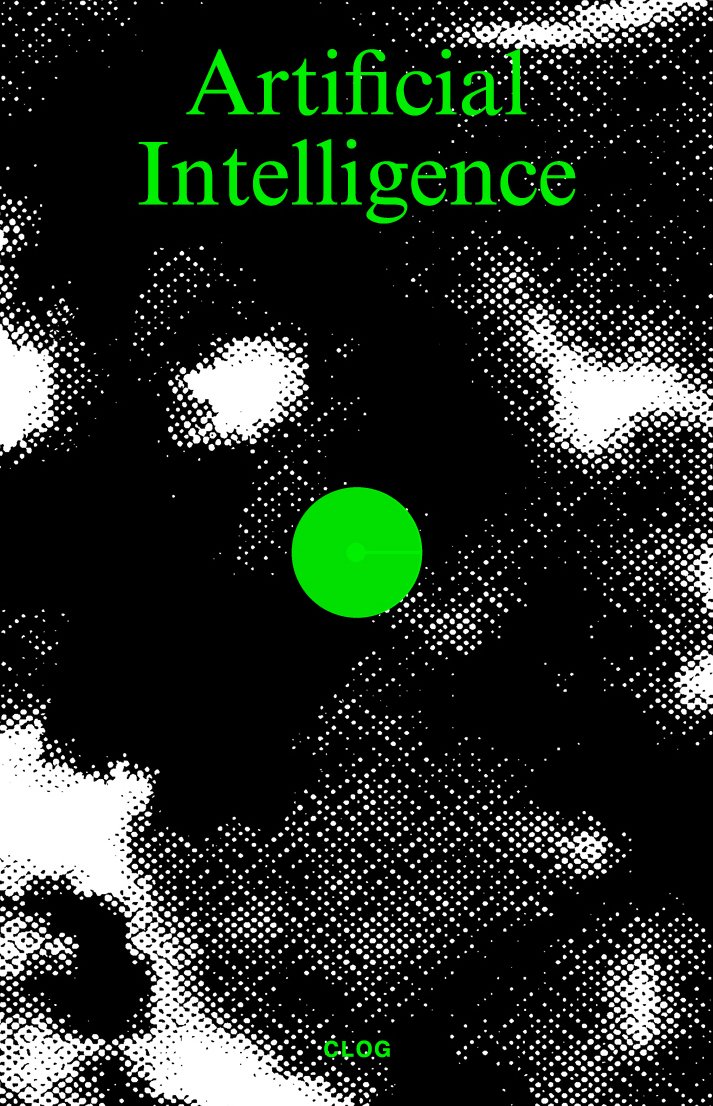Editorial for CLOG X ARTIFICIAL INTELLIGENCE
"Jerry, don't forget. The gods have not created man. Man has created gods." - Fritz Lang in Contempt, by Jean-Luc Godard (1963)
Over the past few decades, technological advances have fundamentally transformed the way we live. However, mythological tales, from Narcissus to Icarus, are more relevant than ever in this age of selfies and bitcoins.
With the advent of artificial intelligence, our faith in its abilities to optimize our decision-making process and drive our cars doesn't seem far removed from the ancient Greeks' faith in their Gods. These deities would steer the ships away from danger, or conversely, careen their course towards grave peril. Ulysses may have been surfing algorithms plagued by viruses and hacks on his long journey back from war.
Although technology has significantly pro-gressed, we still have the same limitations, flaws, and weaknesses as our ancestors of antiquity. In fact, we have mostly strived to achieve a higher definition of understanding towards the world around us, which allows us to further condition it. Winds, fires, and plagues have been apprehended, and abstractions such as geometry and binary code have made possible computations, which has increased our ability to see just how alone we find ourselves on a small planet in an ever-expanding universe. Our quest for understanding our human condition appears endless; no discovery ever seems spiritually or emotionally fulfilling-far from it. By contrast, religions have offered the promise of an afterlife of bliss in exchange for following prescribed guidelines and val-ues. Such beliefs allow us to suspend our deeper questions and doubts.
With Al, science and religion finally meet— with promises of salvation not only for our physical environment, but also for our souls. We will soon be faced with something great-er, beyond the human condition, which we hope will be clement and guide us closer to enlightenment: effective reduction of traffic accidents to zero, accurate diagnosis of and cures for every illness, achievement of a positive-energy footprint, and an end to world hunger. In this state of bliss, perfectly synchronized with the forces and energies of nature, we may finally be living in a communal afterlife either paradise if everything works out, but possibly hell if it doesn't. Our faith in Al will be met with great risks of autocracy, pursuit of false gods, surrendering of our individuality. Though as Pascal's Wager has attempted to demonstrate, the re-wards, however uncertain, could be infinite.
Will this lead us to a turning point in histo-ry—a new singularity that either propels us towards a new era of post-human possibilities or towards the Last Judgement? Or is AI our latest push in a Sisyphean effort, which will bring us back once again facing the same questions? Just like the tales from mythology and subsequent religions, Al will only be as useful as it will be able to tell us about our-selves, sublimate our uncertainties, and guide us towards a more fulfilling existence.
— Savinien Caracostea with Nicholas Gervasi

